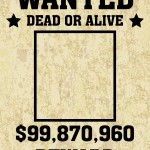
Clark and McLane engaged in a several month-long relationship, which ended when Clark notified McLane’s wife of the affair. McLane threatened Clark: He informed her that he had created a website in her name on which he planned to post…

Yahoo! offers instant message users the ability to receive a text message notification of an instant message. A customer received two messages, and sued for violations of the Telephone Consumer Protection Act. The court denies Yahoo!’s motion for summary judgment….

Recently I posted our IP trivia quiz from WIPIP. To prepare those trivia questions, my colleagues (Tyler Ochoa and Brian Love) and I made a list of potential questions and then picked our favorites. In this post, I’m sharing the…

Last week, the High Tech Law Institute hosted WIPIP, a conference where IP professors and fellows present their academic works-in-progress for peer feedback. As part of the festivities, we had an IP trivia night–which I believe is the first IP…

This is a fun case! Serrano was accused of murdering (in 1997) four people in central Florida. The trial attracted publicity, and his defense lawyer Mason fought the case in the court of public opinion as well as in court….

Duke was a police officer who was Deputy Chief of the Clayton State University Police Department. He had received uniformly positive job reviews. In the wake of the 2012 presidential election, he posted a confederate flag image along with the…
![Court Declines to Review LRO to [.delmonte], Saying gTLDs Aren't 'Domain Names' for Cybersquatting Purposes](https://blog.ericgoldman.org/wp-content/uploads/2014/02/Screen-Shot-2014-02-10-at-9.07.51-AM2-150x110.png)
A Swiss Del Monte entity that had a license to use the “DEL MONTE” mark applies to operate the .delmonte generic top level domain (gTLD). Another Del Monte entity, based in Delaware, filed a “legal rights objection” (under WIPO-established procedures)…

Robins sued Spokeo alleging that Spokeo reported incorrect information about him—that he held a graduate degree and was wealthy—and this caused him difficulty in his job search and other harm. He alleged claims under the Fair Credit Reporting Act and…

At what point does a teacher’s Facebook photo cross the line from humorous to inappropriate? Last December, an Idaho panel considered whether a teacher’s semi-racy photo justified the school district terminating her employment. See the photo in controversy at New…

